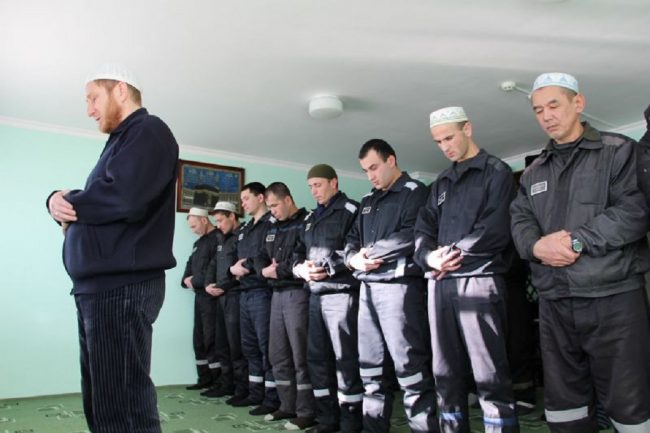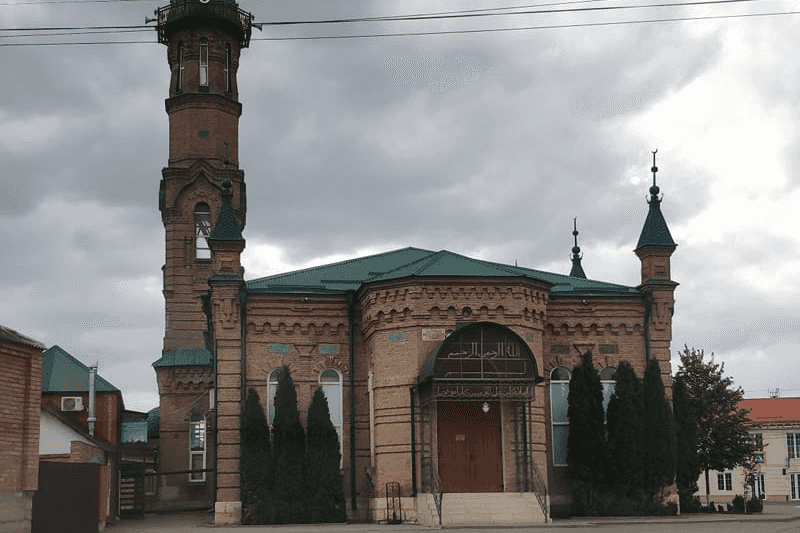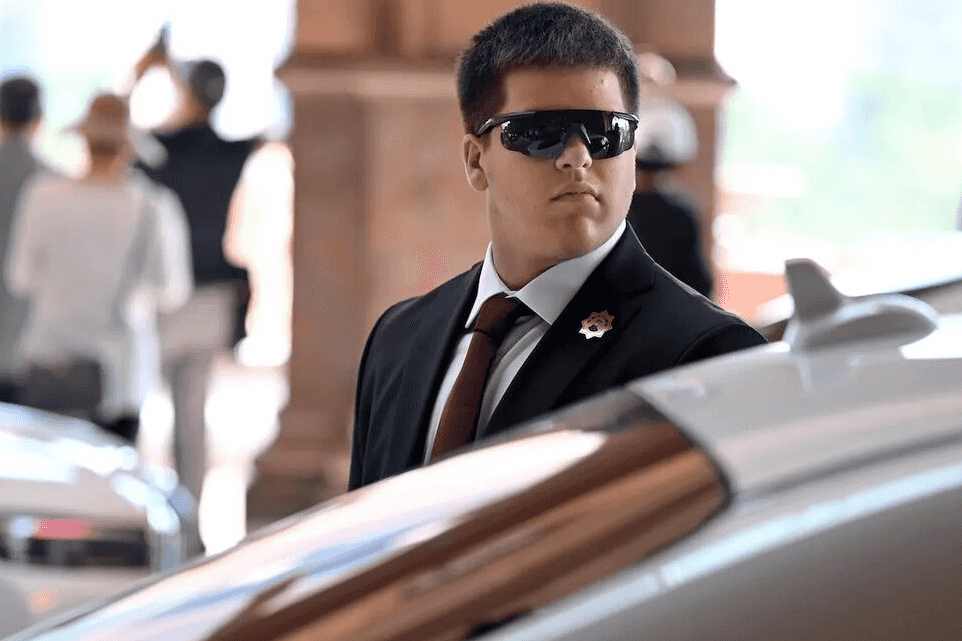

 Prisoners from the Caucasus in Russian jails receive a ‘special treatment’ of beatings, bullying, and torture from both prison authorities and their fellow inmates. But in the ‘green zone’ prisons, where Muslim inmates have developed a system of resistance — the North Caucasians are fighting back.
Prisoners from the Caucasus in Russian jails receive a ‘special treatment’ of beatings, bullying, and torture from both prison authorities and their fellow inmates. But in the ‘green zone’ prisons, where Muslim inmates have developed a system of resistance — the North Caucasians are fighting back.
Beslan (not his real name) was released from a penal colony in the Urals several months ago. ‘I witnessed how they beat the Caucasian prisoners — most of them Daghestanis — because of how they always defended each other, ate together, and performed namaz (Muslim prayers). The other inmates kept their distance, yet it was clear that the beatings couldn’t be organised without their participation or without the knowledge of the prison authorities’, he tells OC Media.
According to Beslan, even in the ‘black zone’ prisons — where prisoners traditionally followed a strict code of loyalty to each other — a concept of ‘solidarity among criminals’ that transcends ethnic differences has faded in recent years due to the rise of inter-ethnic and inter-religious tensions. The prison authorities have skillfully capitalised on this — pitting Slav against Caucasian, and Muslim against mobster.
The fall of the black zones
Timur, a resident of the Russian Republic of Kabardino-Balkaria, was freed two years ago from a penal colony in the Urals. He explains to OC Media that there are traditionally two types of Russian correctional facility — the ‘black zones’ and ‘red zones’ — and that prisoners group themselves into ‘suits’ or ‘castes’. Belonging to a particular caste, Timur says, has a great significance in prison life, but prisoners from the North Caucasus often do not fit into this system.
Timur explains that in the black zones, everything is based on ‘understandings’ — the rules of an unwritten thieves’ code. In the penal colonies where this code still operates, it is seen as an unforgivable offence to cooperate with the prison authorities.
Until recently in black zone prisons, he says a pan-ethnic solidarity among inmates pervaded. Factors such as race, ethnicity or religious belief had no bearing on relations between prisoners. The most important factor was one’s personal qualities and behaviour in the eyes of fellow inmates or camp mates.
In the red zones, however, Timur says the situation of North Caucasian prisoners is much worse. In red prisons, interaction between the prisoners and the prison authorities is encouraged in every possible way. Here, prison life is dictated by the rules of the prison authorities. And the authorities in the red prisons have always had an innate hostility towards prisoners from the Caucasus, according to Timur.
‘Prone to disrupt the regime’
Alibek Tenigov, who is of North Caucasian heritage, served time in several Russian jails from 1995–1999 and 2006–2013. He says attitudes towards North Caucasian prisoners in Russian prisons started to deteriorate in the mid 1990s with the beginning of the Chechen wars. Prisoners from the Caucasus nations were singled out by the prison administrators as well as ‘red caste’ inmates — the name given to prisoners who openly cooperated with the authorities.
Tenigov tells OC Media that by the mid–1990s, the prison authorities had already started singling-out ethnic Chechens, but that over time, the difference between them and other ethnic groups from the North Caucasus became blurred in the minds of the prison authorities.
In Tenigov’s opinion, this attitude was facilitated by the second round of war in the North Caucasus in the late 1990s and early 2000s, whereby the ranks of ‘extremists’ and ‘separatists’ came to be populated not only by Chechens and Ingush but also by Daghestanis, Kabardins, Balkars, and other North Caucasian ethnic groups.
‘During the second Chechen war, all the Chechens and Ingush in our camp were obliged to go on watch duty every two hours. Failure to show up was automatically met with punishment — even as far as being placed in an isolation cell’, he says.
According to Tenigov, nearly all the Chechen prisoners during that period were marked as being ‘prone to disrupt the regime’ or ‘prone to escape’. He says that under various pretexts, the authorities prohibited them from religious worship — which continues to this day — cancelled their visitation rights, forbade them from using the phones, or allowed it only in return for a bribe much higher than the ‘price’ secretly set for other prisoners.
‘They’re all animals’
Tenigov believes that such attitudes towards Caucasian prisoners were confounded because the majority of ‘thieves-in-law’ (the traditional criminal elite) were natives of the South Caucasus — Georgians, Abkhaz, Armenians. Although there was little appetite among the North Caucasians to get involved in the elite criminal brotherhood, the heads of the red prisons failed to distinguish between them and the thieves-in-law prisoners of South Caucasus heritage. As far as the authorities were concerned, they were all ‘animals’. Now even in the black zones, which used to be relatively safe for Caucasian prisoners, they are singled out for discriminatory treatment.
Tenigov recounts that from his very first days in detention, he could sense a ‘particular attitude’ towards him. He says that the North Caucasians were often rotated between different cells every few days, meaning they were not allowed to settle in one place. According to him ‘this could go on for years’ and it ‘stressed the inmate’ who had to constantly get used to new cellmates. Tenigov says that the authorities do not look at the surnames of the prisoners in the files — a photo is enough. ‘If you look Slavic or Scandinavian, it’s unlikely that you’ll be transferred to another cell, but a face with Caucasian features immediately catches the eye.’
Green zones and the growing influence of jamaats
‘With the downfall of the USSR, which was considered to be “one family of brotherly nations”, the principles of internationalism slowly began to collapse among prisoners’, says Timur, a lawyer. ‘Groups based on ethnicity began to play an increasingly important role in the criminal environment and in penitentiary institutions while the role of the traditional “felons code” vs the “red authorities” diminished. As well as ethnicity-based groups appearing in prisons, stable religious communities — particularly Muslims — began to emerge.’
[Read on OC Media: Chechens and mobsters in Russian prison blood feud]
‘Prison jamaats (Muslim communities) in Russian jails have been around for a long time’, explains North Caucasus expert, Denis Sokolov, writing in Russian newspaper Kommersant. ‘The beginning of the second Chechen campaign saw the mass incarceration of Muslims in Russian prisons for the first time’, he writes. ‘This presented the special forces with a problem — it is easier to break people one by one than as a whole jamaat. The prison authorities were always able to manage the zones only through the [cooperation] of the criminal groups, but this evidently doesn’t work with the jamaats.’
In Sokolov’s opinion, Islam is becoming ever more popular in Russian prisons, and the term ‘green zone’, which has been around for some time, refers to a prison where Muslims have informally taken control. Sokolov argues, the green zone has become on par with the black zone — where the traditional criminal elite reigns. He also says that the jamaats have greater cohesion than either the traditional criminal elite or the prison authorities and that this allows the jamaat leaders to use their leverage against the other inmates and the prison authorities.
Beslan, who was released from an Urals prison a few months ago, believes that Caucasian Muslims, not having prior experience of being incarcerated in camps, often provoke excesses themselves — they constantly invoke Allah and the Prophet, persistently preach their religion, worship demonstratively, and express their disgust at haram (forbidden) food such as pork and sausage. Nevertheless, in the camp where Beslan served time, sometimes even Russians joined the ranks of the Islamic community.
‘It’s hard for me to gauge the sincerity of those people. It’s possible that they decided to practise Islam only in order to make life easier for themselves inside the jail, as the members of the Muslim community always stuck together and helped and defended each other’, says Beslan.
According to him, prison authorities are not able to control the new informal groups among the prisoners, and therefore they try to prevent them. Beslan says that the ‘black caste’ (traditional criminal elite) do not look favourably on Muslim solidarity as it inhibits them from extending control over all of the inmates. ‘This obstacle makes allies of the prison authorities and the black caste, although neither would ever admit it’, he says.
Where ‘they break you’
Aslan Cherkesov from Kabardino-Balkaria has been serving time in Minusinsk Prison since October 2017 for shooting dead football fan Yegor Sviridov during a street fight in Moscow in 2010. Cherkesov has claimed through his lawyer, the Committee Against Torture, as well as on camera, that prior to being transferred to Minusinsk Prison from the Krasnoyarsk penal colony, he was repeatedly subjected to beatings and torture. During his time in the Krasnoyarsk colony (2011–2017), he received periods of 5, 10, and 15 days in punitive solitary confinement on a monthly basis. He told his family through his lawyer that ‘if I am found dead, it won’t be suicide’.
‘It’s hard for me to imagine that someone would want to get themselves put in solitary confinement… it’s a small space where there is nothing except [four] walls and a stool nailed to the floor. And a prisoner either sits on it for the whole day or paces back and forth. It’s even forbidden to lie down — the bed is only laid out at night; it’s forbidden to smoke. If I spent even five days in solitary confinement, I would do my utmost to avoid breaking the rules for the remainder of my sentence’, says Oleg Khabibrakhmanov of the Committee Against Torture.
He assumes that the bullying of Cherkesov was ordered by the authorities.
Regardless of where a prisoner is originally arrested or sentenced, many natives of the North Caucasus end up in the prisons and penal colonies of Siberia and the Far East. Minusinsk Prison, in southern Siberia, is where Chechen businessman Abdula Isayev is being detained — his lawyer has been denied access to him. Another Chechen, Zubair Zubayrayev, was released in 2012 having become seriously ill as a result of torture sustained while he was in prison, according to his lawyer. It is not the case that the prison authorities only target terrorists or criminal bosses. According to human rights defender Lev Ponomarev, people from the Caucasus are continuously subjected to torture in prison for no other reason than hatred and vengeance.
Nadezhda Radnayeva, a lawyer with the Prisoners Rights Defence fund, believes that ‘the prejudice of those working in the penal colonies extends not just towards convicted separatists, but towards all North Caucasians as a whole’.






